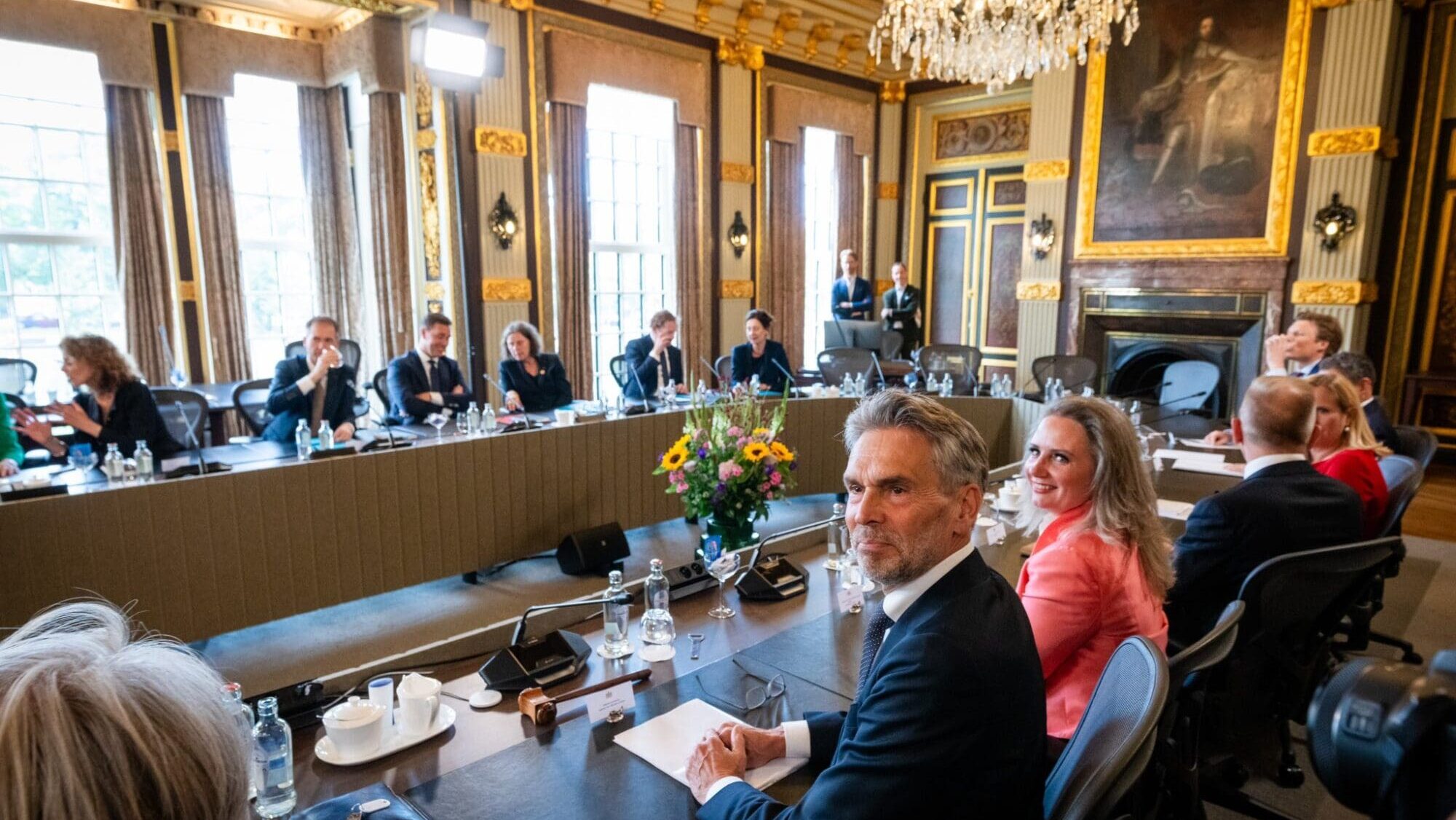
Photo: @MinPres on X, 2 July 2024
The Netherlands’ coalition government, with Geert Wilders and his right-wing Party for Freedom (PVV) as its backbone, was officially sworn in on Tuesday. The controversial EU Migration Pact is expected to be an early hurdle for the new administration, which has vowed to regain control of the country’s crumbling asylum system.
As part of the new administration, Wilders’ Party for Freedom (PVV) has secured control of the government’s migration portfolio, The ruling coalition’s programme outlines a plan to ‘opt out’ of the EU Migration Pact. While designed to implement a common set of asylum rules for member states, critics claim the Pact merely ratifies existing open-border policies.
European Commission officials have already reacted angrily to Dutch attempts to secure an opt-out guarantee from the Pact, reminding the new Netherlands government in a sternly worded statement that the asylum legislation “binds on all concerned member states” following its final approval.
Following months of negotiations, former intelligence chief Dick Schoof is in post as prime minister, an independent leading the four-way coalition that includes Wilders’ PVV, the Farmer–Citizen Movement (BoerBurgerBeweging, BBB), the centre-right New Social Contract (NSC), as well as the neoliberal People’s Party for Freedom and Democracy (VVD) of former Dutch PM Mark Rutte, who will now head up NATO.
Snap elections held in November of last year handed Wilders and his PVV party the leadership in Dutch mainstream politics. The previous Rutte administration collapsed due to disputes over migration and the hotly contested nitrate reduction policy that had spurred years of agrarian protests.
Green opposition leader and former EU environmental commissioner Frans Timmermans was quick to launch a motion of no confidence in the new government in the Dutch Parliament, claiming that their past statements proved two new PVV ministers were right-wing extremists. Progressive MPs took umbrage at previous statements by two PVV ministers, mass immigration opponents Reinette Klever and Marjolein Faber, who have criticised foreign aid and what they call “population replacement.” The accusations were loudly denied in the chamber by Wilders himself.
So-called opt-outs from EU legislation are exceedingly rare in European politics, with Ireland and Denmark the only two member states with the opportunity to potentially ‘opt-out’ of the Pact, which the Irish Parliament voted against doing earlier this month.
Securing an opt-out would require a lengthy and complex negotiation process between the EU and the Dutch government, with Brussels able to implement ‘infringement’ proceedings or even withhold funds from the Netherlands in the event of non-compliance.
Documents seen by The European Conservative in May revealed ongoing shuttle diplomacy between the EU and member states over the creation of strict implementation timelines. In the background, Eurocrats quietly tipped the scales in favour of open border policies.The new Dutch government is not alone in its criticism of the Migration Pact—with Hungary, Slovakia, and even Poland’s Europhile regime under Donald Tusk airing public concern that Brussels bureaucrats aim to monopolise powers of border management, irrespective of the desires of member states and citizens.
